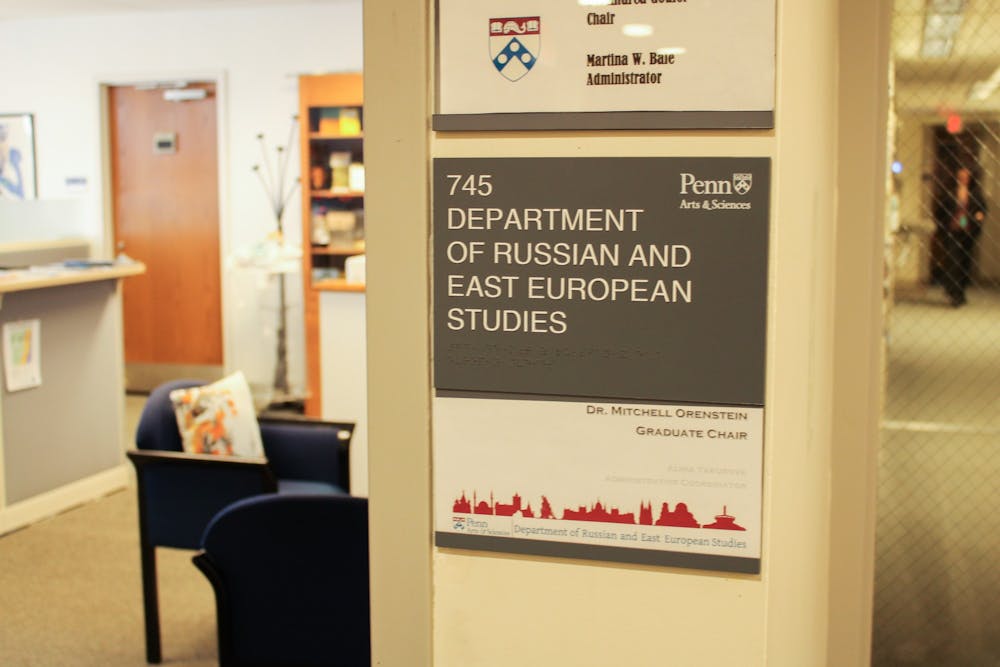The Annenberg School for Communication and the Department of Russian and Eastern European Studies have created a one-year program to host graduate students from Ukraine who have been displaced by the war.
Russian and Eastern European Studies professors Kevin Platt and Mitchell Orenstein founded the program to help Ukrainians continue their education after the war disrupted their studies. The program is running during the 2022-23 academic year.
Scholars underwent a selection process and were chosen based on merit and fit.
“There were a lot of applicants, and many of them were really talented, but the department eventually decided on a few that we felt like we could advise well with a future course trajectory and that fit the range of things we do in our department,” Orenstein said.
Kateryna Onyschenko describes herself as a visiting scholar because although she is taking courses and participating in research, she is not pursuing a degree. Her research focuses on questions regarding the basic principles of preserving peace and security and why they are under threat today.
When the war broke out, Onyschenko was in her first year of a two-year master's degree program after studying law at the Kyiv-Mohyla Academy. When she was allowed to postpone the start of her second year due to the war, she decided to use the opportunity to come to Penn. She wants to work in diplomacy one day.
After the end of her time at Penn, she hopes to go back to Kyiv and resume her master's degree program.
“I think I can [go] back [to Kyiv], but I don’t know. We cannot make plans right now,” Onyschenko said.
RELATED:
Penn refutes allegations of direct investments in 'adversarial' entities after U.S. House inquiry
Perry World House panelists discusses the war in Ukraine, one year on
Serhii Shadrin worked as a media manager at an IT company during the breakout of the war and had plans of going back to school to obtain a Ph.D. When a friend sent him a link to the program, he immediately applied.
“It has always been an interest of mine to go abroad and come to the US to study. It was very interesting for me to see this perspective, especially since I was always interested in international relations and learning new cultures and meeting new people,” Shadrin said.
Shadrin is interested in studying the effects and development of Ukraine’s Ministry of Digital Transformation, which was launched under Ukrainian President Volodymyr Zelenskyy in 2019 to digitize Ukraine.
“I want to work in digital diplomacy. I just found this intersection of politics and the digital world that I really want to combine. That is why when I came here, I decided to take courses in East European studies and also take courses at the Annenberg School on digital and media studies,” Shadrin said.
His long-term plan has always been and remains to return to Ukraine and work in its Ministry of Foreign Affairs.
Although Shadrin said he is thankful for the opportunity this program has given him, he added that it does not erase the difficulties of war in his home country.
"I still live in this Ukrainian informational sphere where I start my day by reading the news and my family and my friends are going through this daily experience of war,” Shadrin said. “I had a lot of challenges here, but of course it is much safer and better to be here than to be in Ukraine right now.”









